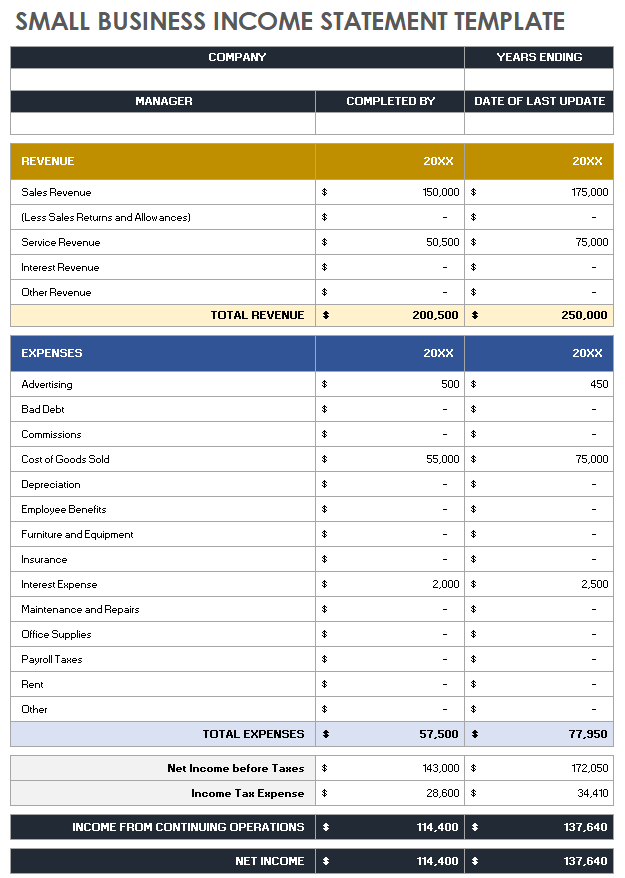
Embarking on the journey of small business ownership is like navigating a vast ocean. You've got your ship, your crew, and your destination in mind. But without a well-charted course, you're at the mercy of the tides. Financial planning is your map and compass, guiding you towards business growth and success. So, let's dive in and master financial planning for small business owners, shall we?
Understanding Financial Planning for Small Business Owners
Financial planning is more than just budgeting; it's about understanding where your business is, where you want it to go, and how you'll get there. It's about setting financial goals, managing risk, and strategizing investments. It's your blueprint for business growth.
Why is Financial Planning Important?
Imagine driving a car without a dashboard. You wouldn't know how fast you're going, if you're running out of fuel, or if your engine is about to overheat. Financial planning is your business's dashboard. It keeps you informed and in control. According to a study by the Cranfield School of Management, businesses that plan financially outperform those that don't.
Setting Your Financial Goals
Your financial goals are your destination. They should be SMART: Specific, Measurable, Achievable, Relevant, and Time-bound. Do you want to increase revenue by 20% next year? Open a new store in five years? Your goals will guide your financial planning.
Budgeting: The Backbone of Financial Planning
Budgeting is like the rudder of your ship; it steers your business. Start by calculating your revenue, then subtract your fixed costs (like rent, salaries), and variable costs (like utilities, inventory). What's left is your profit. This guide by the U.S. Small Business Administration is a great resource for creating your first budget.

Tracking and Adjusting Your Budget
Your budget isn't set in stone. It's a living document that should be tracked and adjusted regularly. Use accounting software like QuickBooks or Xero to monitor your spending and income. If you're overspending in one area, cut back. If you're underspending, consider reinvesting that money into your business.
Investment: Fueling Business Growth
Investment is the wind in your sails, propelling your business forward. It could be investing in new equipment, marketing campaigns, or research and development. The key is to invest wisely. Consider the potential return on investment (ROI) and how it aligns with your financial goals.
Risk Management: Navigating Stormy Waters
Every business faces risks, from market downturns to natural disasters. Risk management is your life jacket, keeping you afloat when storms hit. Identify potential risks, assess their impact, and develop contingency plans. Consider business insurance to protect against financial losses.
Professional Help: Your Navigation Crew
You don't have to navigate alone. Consider hiring a bookkeeper, accountant, or financial advisor. They're your navigation crew, helping you read the map and steer clear of hazards. Websites like Upwork and Fiverr are great places to find freelance financial professionals.
Monitoring Your Financial Performance
Regularly monitor your financial performance using key performance indicators (KPIs) like gross profit margin, net profit margin, and current ratio. These are your navigation tools, telling you if you're on course or need to adjust your sails.
Planning for the Future: Business Growth and Exit Strategy
Financial planning isn't just about the here and now; it's about the future. It's about planning for business growth, whether that's expanding your product line, opening new locations, or entering new markets. It's also about planning your exit strategy. Whether you plan to sell, pass on your business, or close up shop, an exit strategy ensures you do so on your terms.
Conclusion: Charting Your Course to Success
Mastering financial planning for small business owners is about charting your course to success. It's about setting your destination with clear financial goals, steering your ship with a solid budget, fueling your journey with wise investments, and navigating storms with effective risk management. It's about staying on course with regular monitoring and adjustments. And it's about planning for the future, both for business growth and your eventual exit.
So, are you ready to chart your course? To master financial planning and steer your business towards success? Remember, every expert was once a beginner. You've got this.
FAQs
What is the first step in financial planning for small business owners? The first step is setting your financial goals. They should be SMART: Specific, Measurable, Achievable, Relevant, and Time-bound.
Why is budgeting important in financial planning? Budgeting is the backbone of financial planning. It helps you understand your income and expenses, plan for the future, and make informed decisions.
What should I consider before making an investment? Before investing, consider the potential return on investment (ROI) and how it aligns with your financial goals. Also, consider the risks involved.
How can I manage risks to my small business? Identify potential risks, assess their impact, and develop contingency plans. Consider business insurance to protect against financial losses.
Why is it important to monitor my business's financial performance? Monitoring your financial performance helps you understand if you're on track to meet your goals, identify areas for improvement, and make informed decisions.
Posting Komentar